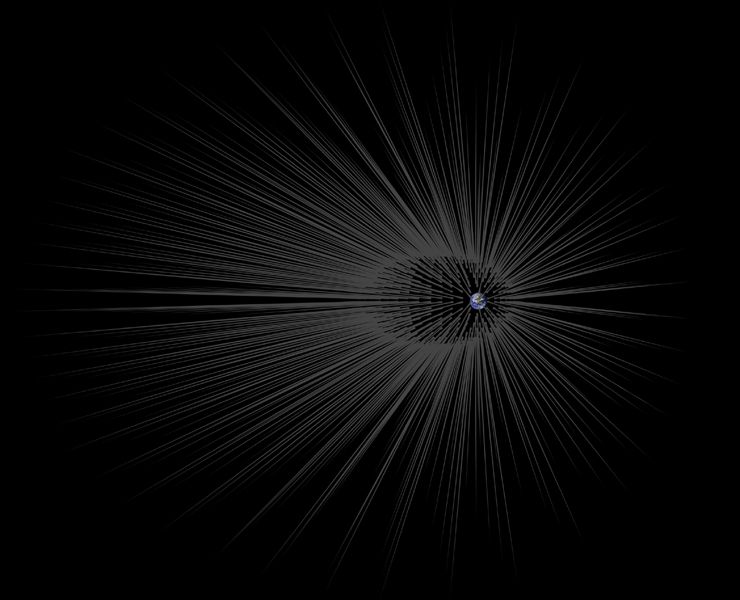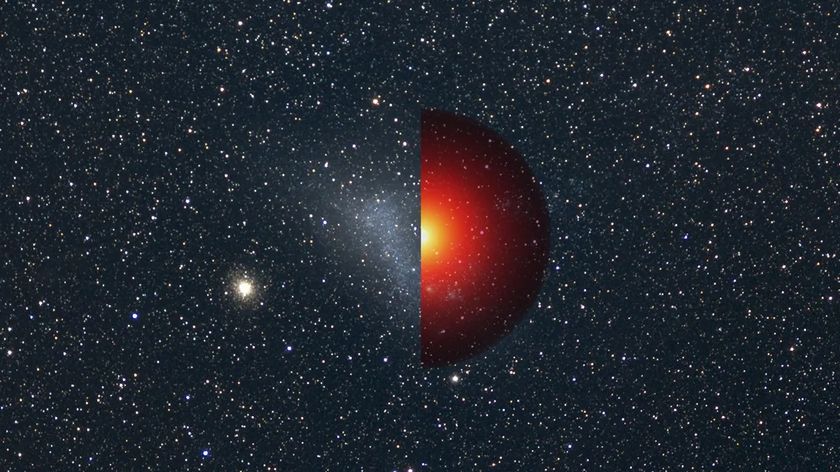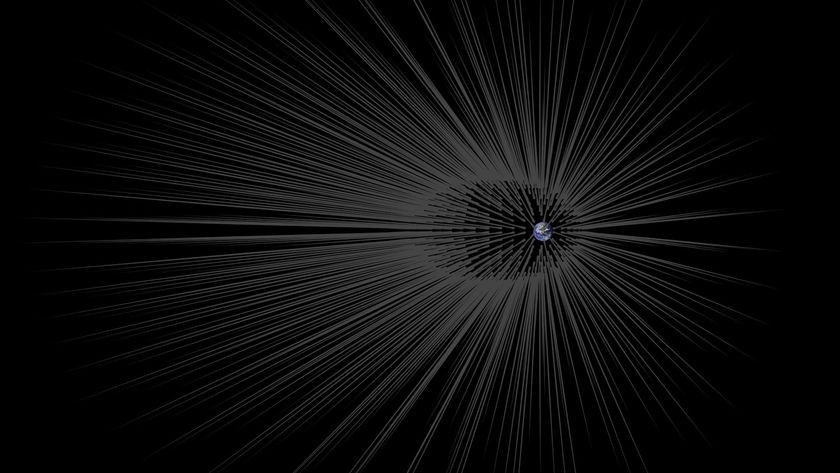
Earth may sport a thick coat of superlong dark matter "hairs," a new study suggests.
Astronomers think dark matter — a mysterious, invisible substance that neither emits nor absorbs light, and is about six times more common than "normal" matter — forms fine-grained but incredibly long streams throughout the universe.
"A stream can be much larger than the solar system itself, and there are many different streams crisscrossing our galactic neighborhood," study author Gary Prézeau, of NASA's Jet Propulsion Laboratory in Pasadena, California, said in a statement. [Gallery: Dark Matter Throughout the Universe]
Prézeau performed computer simulations that looked at what happens when such streams go through Earth and other planets in the solar system. (Dark matter doesn't interact much with normal matter, so the mysterious stuff can zoom through planets' interiors.) He found that these worlds' gravity likely bends the streams into narrow hairs, complete with dense "roots" and more diffuse "tips."
In the case of Earth, the root of such hairs would lie about 600,000 miles (1 million kilometers) from the planet's surface, while the tip would be about twice as far away — 1.2 million miles (2 million km) from Earth. (For perspective, the moon orbits Earth at an average distance of 239,000 miles, or 385,000 km).
This finding could help astronomers learn more about dark matter, whose existence has been inferred from its gravitational influence on stars and other objects composed of "normal" matter. (Dark matter is not directly detectable.)
"If we could pinpoint the location of the root of these hairs, we could potentially send a probe there and get a bonanza of data about dark matter," Prézeau said.
Sign up for the Live Science daily newsletter now
Get the world’s most fascinating discoveries delivered straight to your inbox.

The new study, published in The Astrophysical Journal, further suggests that the different layers of a planet, moon or other body should cause corresponding bends or "kinks" in these dark matter hairs, which researchers could also put to use.
"Theoretically, if it were possible to obtain this information, scientists could use hairs of cold dark matter to map out the layers of any planetary body, and even infer the depths of oceans on icy moons," NASA officials wrote in the same statement. (Dark matter is thought to be "cold" in that it doesn't move around very much.)
While dark matter is much more abundant than regular matter, scientists think the invisible stuff makes up just 27 percent of all matter and energy in the universe. The vast majority is composed of dark energy, a mysterious force associated with the universe's accelerating expansion. "Normal" matter makes up just 5 percent of the cosmos.
Follow Mike Wall on Twitter @michaeldwall and Google+. Follow us @Spacedotcom, Facebook or Google+. Originally published on Space.com.













